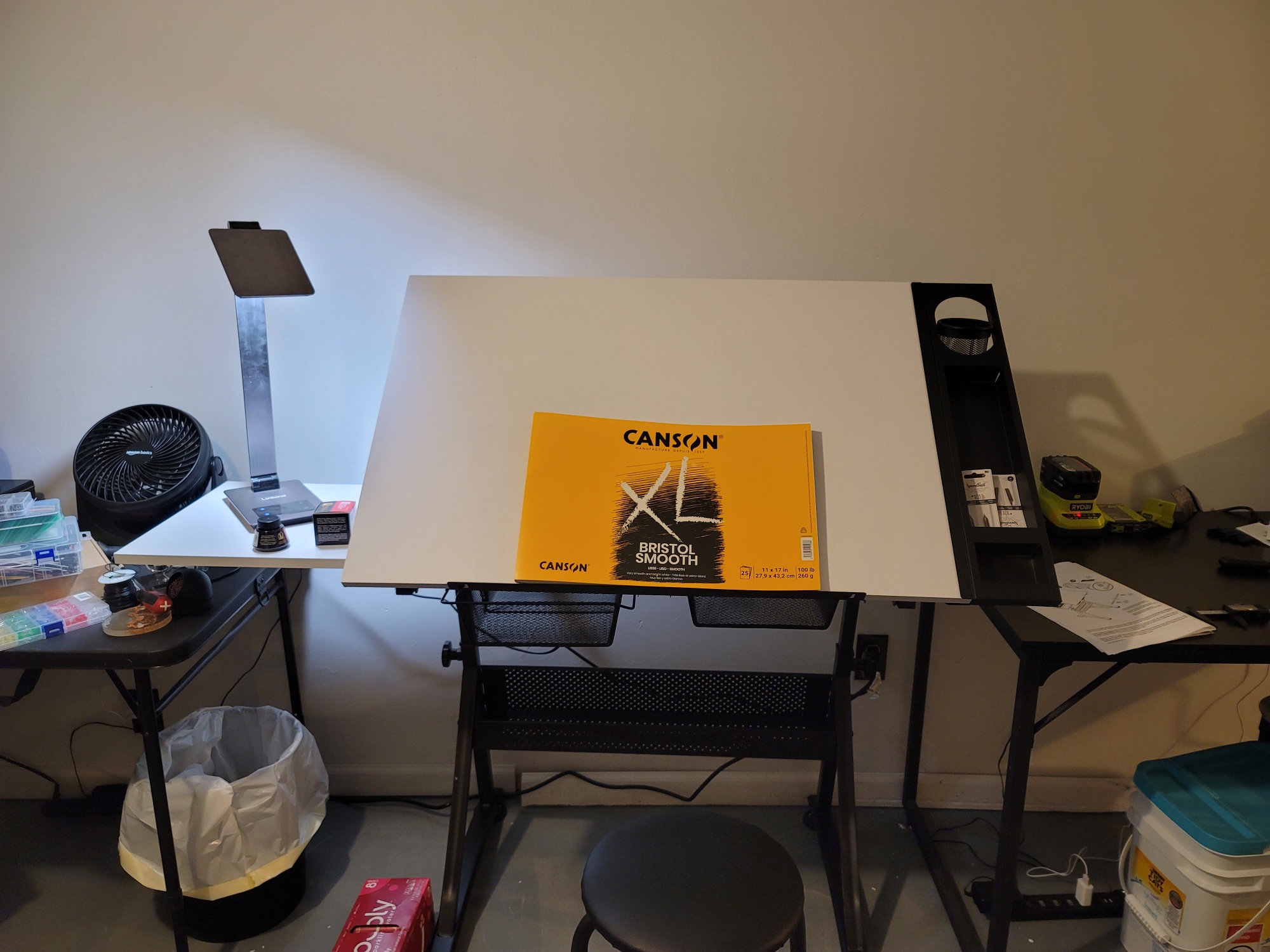AbNormalHumanBeing
Some weird, German communist, hello. Obsessed with philosophy (German Idealism and its subsequent evolutions) and history (mainly everything since the French Revolution), as well as the Fediverse. Secondarily obsessed with video games as a cultural medium. Also somewhat able to program, but not that good.
- 43 Posts
- 30 Comments

 2·10 days ago
2·10 days agoI haven’t used Bazaar myself, but in general, frontends like this usually just do that behind the scenes. If you are comfortable/used to using another frontend/method, you probably won’t need it. It’s all about the GUI, comfort and also usually the selection of featured apps (although that could be distro-dependently handled, too). The one thing here I personally agree with being great which I personally haven’t seen like this (I’m used to Pamac, myself), is having fundraising/donation info right in the GUI for the projects.

 131·12 days ago
131·12 days agoI mean - kind of? I do agree a lot of “reaction” content is bottom-of-the barrel shit, but it’s not like this one is just making funny faces and going “woaaah, nonono, they didn’t!!” or something. He does use the video as a jumping off point for his own commentary, providing his own perspectives (those segments are also edited with cuts, showing this wasn’t just turning their webcam on and rambling without any evaluation later). Just roughly looking through the preview thumbnails hovering over the video progress bar, easily more than 50% is talking about topics in the reacted video without even the reacted-to footage on screen.

 3·12 days ago
3·12 days agoFeel free to do so! After all, I’ve also just linked to their PT video, and this is not about “Karma”, just about spreading the content :)

 1·12 days ago
1·12 days agoAh, good to know and thank you for looking into it! Yeah, I added you to the instances I mirror automatically, I can remove you or you can add me to trusted - whatever works better for you. I have a lot of space to spare, so I reserved a big chunk of it to mirror stuff automatically from trusted instances for better network availability.
Will restart PT later when I’m back home. Thanks again for the heads up! And already excited to watch/listen to what I missed later.

 5·13 days ago
5·13 days agoTo give them some leeway - it seems that wasn’t for lack of trying to get more statements from other people involved, and they did try to provide statements by all involved parties were relevant with what they had available.

 3·13 days ago
3·13 days agoThat was an interesting summary of the happenings since last time, and I appreciate them delving into the criticisms of their last documentary - which I think was overall also a good work of research overall, even if the mistakes they made (and acknowledged) were real.

 1·13 days ago
1·13 days agoHuh, that is weird, I have missed 3 episodes as it seems - they don’t show up on my instance and I wasn’t notified as a subscriber. Did a very quick check of logs in the PT admin interface, but nothing stands out on my side as a federation issue. (But I may have missed something for sure.) @ozoned@piefed.social - do you know what could be the issue? Will try to see if I find more later today, too.
I guess as a workaround I can try watching on mastodon/piefed - although I am not really using the former at the moment, and the latter is not the best for following PT yet.

 2·13 days ago
2·13 days agoI’m not giving up hope on Summer Eternal creating something that - even if the effect of DE can’t be reached again ever - could build on it in interesting ways. They could channel the outsider effect along with convictions in the team in a way, that could provide at least some magic. But I am ready to be disappointed, of course.

 6·13 days ago
6·13 days agoIt’s about Clippit, which was a mascot that notoriously annoyed MS Office users in the 90s and 2000s. It did not yet collect your data the way everything does now.

 7·13 days ago
7·13 days agoHab das mal sehr grob überflogen, die interessanten/relevanten Anteile beginnen ab Seite 35. In der Tat ein eher oberflächliches Verständnis von Marx u. Engels in der Begründung, wie im Artikel erwähnt wurden anscheinend “www.staatslexikon-online” [sic] und das Kommunistische Manifest herangezogen, um das relevante - die grundlegende Unvereinbarkeit von Marx und GG - zu begründen.
Andere Sachen beim Überfliegen, wie in wie Weit sich nicht ausreichend von alten Publikationen distanziert wurde, kann ich nicht beurteilen.
Aber das Verständnis von Marx und Engels Werken, wie hier formuliert, ist meines Erachtens tatsächlich so oberflächlich, dass es an sich nicht zu einer blanko-Einstufung der Verfassunsfeindlichkeit taugen sollte. Gerade der späte Marx und Engels haben da durchaus differenziertere Beiträge geleistet. Es wirkt auf mich so, wie die Denker und Prinzipien der Französischen Revolution als grundlegend und gänzlich unvereinbar einzustufen, mit Bezug auf einzelne von Aussagen von Robespierre und die Terrorherrschaft während der Revolution.

 60·13 days ago
60·13 days agoBonziBuddy was a herald of the apocalypse.

 3·14 days ago
3·14 days agoThank you for taking time and effort creating these videos and providing them on the Fediverse, will have a watch later!
As for Kdenlive messing with colour levels, never experienced that myself - but I only used it for very casual editing and also didn’t really pay attention to it. Maybe you can try asking about it on !kde@lemmy.kde.social ?

 141·14 days ago
141·14 days agoUnd die
KillerDrogenspiele!!!
Wann wirds mal wieder richtig Sommer
So ein Sommer wie er früher einmal war
Ohne Hitzerekorde und ohne Waldbrände
Und nicht so heiß und drückend wie die letzten Jahr’

 3·20 days ago
3·20 days agoWe’ll do our best!

 2·23 days ago
2·23 days agoThat’s awesome, thanks for sharing! Excited to see what talks there will be.

 27·24 days ago
27·24 days agoI may be misremembering, so take this as potential bullshit, but I seem to recall there was a study (or just a survey?) that seemed to indicate, that onlineness for men generally correlated with less mysogyny than the overall population - with the exception of those explicitly in the “manosphere” bubble, who then spike on the far end of the spectrum.
Thinking back of how I remember groups of boys and men (which I was a part of) talking with each other offline before widespread internet access (or even now), that kind of made sense to me. I remember being often rather alone with my opinions and being told stuff like: “Just accept that sexism is funny.” Especially thinking back to pre-internet teenage me, I had a lot of weird assumptions internalized that online exchanges, seeing actual, unfiltered opinions of women mostly, helped correct.

 5·24 days ago
5·24 days agoThis paper seems to suggest so, but also mentions “Previous empirical work on this topic, which shows a diverse range of estimated effects […]” - so it seems like other factors will play a role. (Disclaimer: I read only the abstract)

 3·24 days ago
3·24 days agoWenn eine Uni da unten was findet könnten die das analog zu Hassium tatsächlich so nennen, nur um Tippfehlerverwirrungen noch mehr verwirrend zu machen.




















In theory, yes. Several of the channels that publish on PeerTube and YouTube have referral links, sponsored segments and the likes - The Linux Experiment and Gardyner Bryant are two big ones off the top of my head, as you also pointed out. There’s a support button integrated to link to Patroen/Liberapay/Ko-Fi and the likes, and during their AMA over at !opensource@lemmy.ml three months back, they mentioned having better Patreon integration on their radar at least, although not a huge priority at this point.
In practice - it comes down to the chicken and egg problem again, as well as currently a lack of discoverability. One reason creators put up with the BS on YouTube is that, even when ad monetization is basically nothing worthwhile at all for the vast majority, and the algorithm also forces them to hamstring their creative process at times, it is the one place where people are most likely to discover your videos, thanks to the algorithm being trained to keep the audience engaged in addictive binge-watching, and the way it - to its credit - can also sometimes push small, still unknown creatives into people’s feeds if the audience could be interested in the topics/video style.
Now, an addictive, obscured algorithm like that would rightfully be anathema to the principles behind PeerTube, but there have been some attempts to create better discoverability. This Firefox add-on is super basic, and it doesn’t seem to work without hiccups - but it did help me discover some stuff at least. Communities like this one here help with word-of-mouth discovery. And some creatives that are focused on the Fediverse leverage Mastodon integration to engage with their existing community there, and have those users as their main audience, which can quite seemlessly interact with videos through mastodon.
So, in theory, there is nothing that would prevent living on PeerTube alone, ad revenue from video ads is not nothing, but for many, it is not the main source of income, sometimes basically just pennies. Referral links and sponsored segments work just the same as on YT, basically. In practice, the community is still too small, so most creatives will opt for publishing on PT and YT simultaneously, if at all - very understandably so, with varying levels of taking PeerTube seriously and putting some effort (like engaging with comments on there, or checking if your YT-imports actually succeed and such). Increasing that number could help with growing an engaged community on PT, which would then increase the attractiveness of it - potentially to the point where one day, it could become more feasible (alongside other potential developments, like better integration of PT with platforms like Patreon/Liberapay/Ko-Fi).